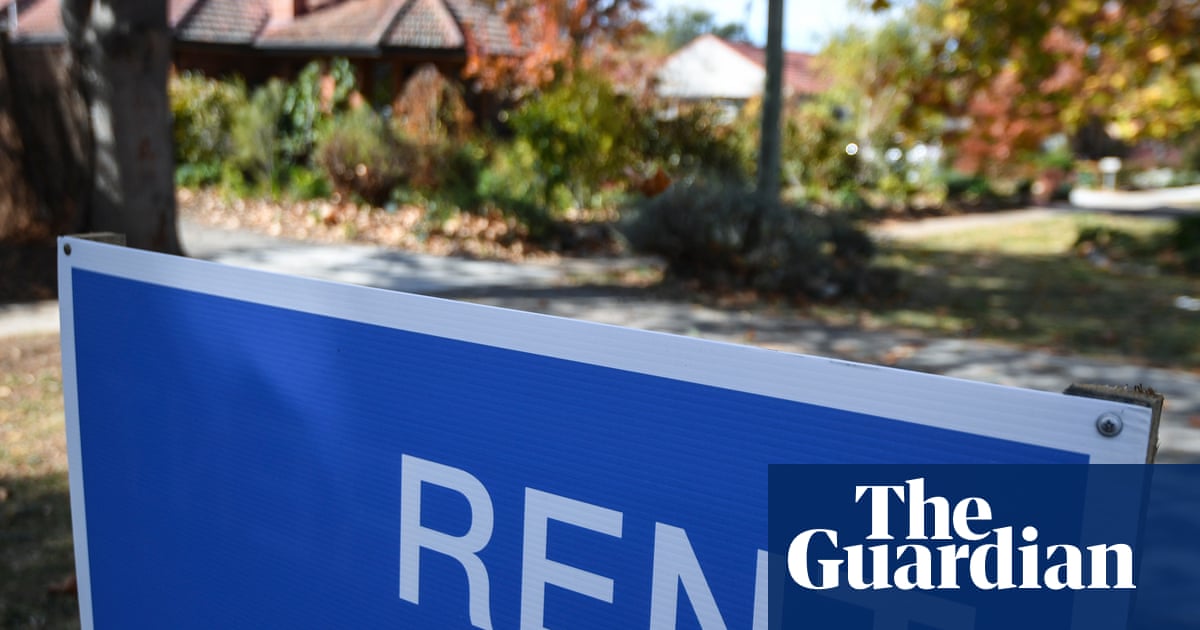The New South Wales tenants union has called for nationwide reforms to crack down on misleading rental advertisements after the state government introduced new laws in response to thegrowing use of artificial intelligencein real estate.
The legislation, announced on Sunday, will require mandatory disclosure when images in rental advertisements have been altered to conceal faults and mislead rental applicants.
The state government cited examples of real estate agents using artificially generated furniture that showed a double bed in a bedroom that was only large enough to fit a single in listings, ordigitally modifying photosto obscure property damage.
The new laws aim to stop the unnecessary collection ofpersonal informationto protect renters’ personal data.
Sign up for Guardian Australia’s breaking news email
About a third of people in NSW rent their homes and the state government has estimated that about 187,000 pieces of identification information were collected from renters in the state every week, from requiring personal photos and social media account details to revealing thenumber of tattoos an applicant had.
If the bill passes parliament, a standard rental application form will be introduced to clarify what information can and can not be collected.
The chief executive of the Tenants’ Union of NSW, Leo Patterson Ross, said “all renters in Australia” should be granted these protections.
“This is an area of renting that has had almost no protection for renters at a time that they are often vulnerable and under pressure to find a new home,” said Ross, who helped consult on the bill.
“We have seen some progress on standardising application processes in other states but they haven’t included consideration of the whole range of ways information is being collected or ensuring advertising is an authentic representation of the property on offer, or at least manipulation is disclosed.”
Ross said the use of fake photography had become a “growing frustration” for many amid thegrowth of AIanddigital manipulation.
“Being misled into visiting a property that is not suitable is frustrating for prospective tenants and may mean they miss out on other properties,” he said.
“But it also risks inflating the rent itself by inflating the number of people who appear interested in a place and increasing pressure on someone to rush to put in an application or even offer above the advertised rent.”
Ross said just as with AI or embedded networks, governments should look at other important information that may mislead or significantly alter people’s interest in properties.
“Landlords could also be required to disclose at the advertising stage the age of the photos being used, the repairs and other compliance history, the energy efficiency performance … and provide floor plans for the property as well as current required disclosures,” he said.
Sign up toBreaking News Australia
Get the most important news as it breaks
after newsletter promotion
The minister for better regulation and fair trading, Anoulack Chanthivong, said renters were “entitled to dignity and privacy when living in a rental property – and this extends to their personal information too”.
“These reforms are a very commonsense solution to a very real problem for people in the rental market, and I would love to see other states and territories follow NSW’s lead,” he said.
“Regulation reform is an ongoing journey and of course we are always looking at options to improve protection for consumers in the property market.”
Corporations for agents and landlords would be up for penalties of $49,500 if they broke the privacy rules, or $11,000 for individuals, under the new laws. Individuals would be imposed $5,500 fines or $22,000 for businesses for non-disclosure of misleading or altered photographs.
The NSW rental commissioner, Trina Jones, said cyber breaches and data theft were a “major privacy risk” to individuals and the businesses the collected and held information.
“There’s a cyber breach reported in Australia every six minutes,” she said. “Renters shouldn’t have to trade away their privacy just to find a place to live.”
The chief executive of the Real Estate Institute of NSW, Tim McKibbin, said for the purposes of real estate transactions, including residential rentals, there was often a necessity for agents to collect some personal information.
But he said when that no longer existed, information should be deleted. He said uploading photography that didn’t accurately represent the property was a “false and misleading” practice.
